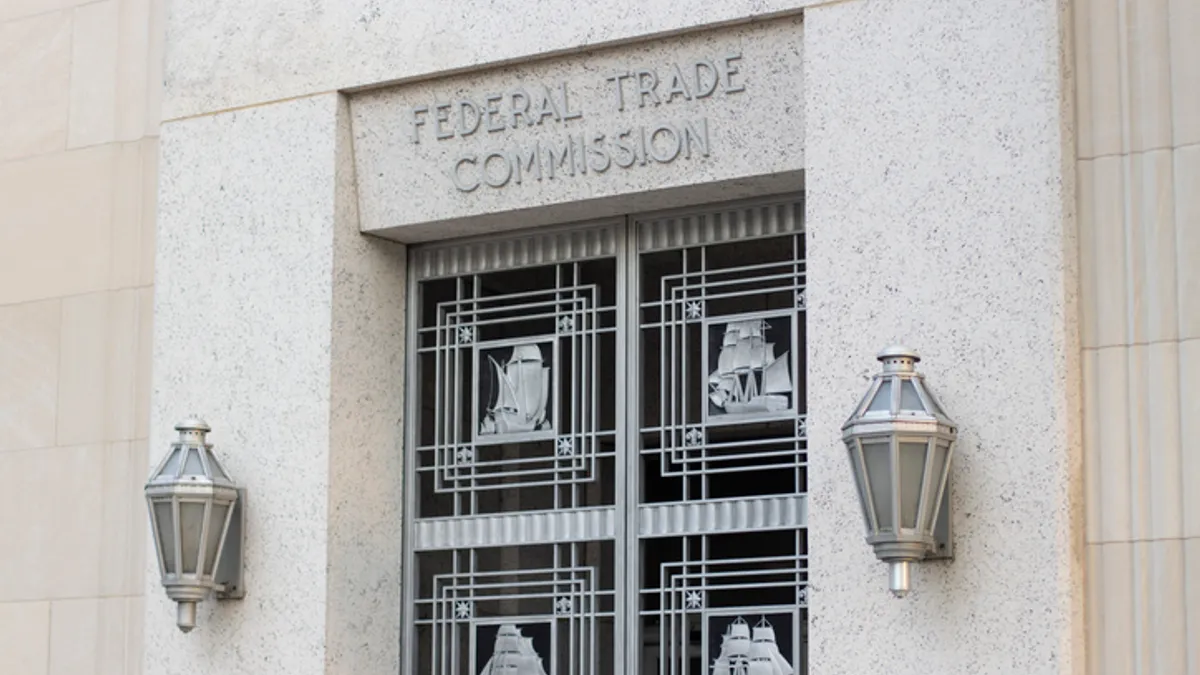An article from

Dive Brief
The three companies are claiming the FTC’s suit is unconstitutional because it was lodged in the agency’s administrative court, instead of a federal one.

This audio is auto-generated. Please let us know if you have feedback.
Dive Brief:
- CVS, Cigna and UnitedHealth are suing the Federal Trade Commission in a bid to block the agency’s lawsuit against their pharmacy benefit managers for allegedly inflating U.S. insulin prices.
- The three companies are claiming the FTC’s suit is unconstitutional because it was lodged in the agency’s administrative court instead of a federal court, violating their right to due process under the Fifth Amendment.
- The FTC slammed the move as a tactic to distract from the allegations against the PBMs.
Dive Insight:
The legal fight between antitrust regulators and the three largest PBMs in the country is heating up.
In September, the FTC sued CVS’ Caremark, Cigna’s Express Scripts and UnitedHealth’s Optum Rx, alleging that their negotiating practices with drugmakers resulted in artificially higher prices for life-saving insulin drugs. Regulators filed the suit in their in-house administrative court, kicking off a proceeding before an administrative judge. After the judge hears the case, FTC commissioners will then vote on whether or not to adopt that opinion.
That process violates the companies’ constitutional right to due process by allowing the FTC to act both as a prosecutor and a judge, according to the complaint filed Tuesday in a Missouri district court.
Allowing the FTC to try the case against the PBMs “would subvert bedrock constitutional principles of accountability and fairness in an attempt to transform significant aspects of an entire industry by regulatory fiat,” the complaint says.
The FTC’s claims involve private rights, so they must be litigated in federal court, rather than the “fundamentally unfair” in-house process, according to the complaint. In addition, the FTC commissioners, along with their in-house tribunal, are “unconstitutionally insulated from removal by the President and thus are insulated from democratic accountability,” the complaint reads.
“It has become fashionable for corporate giants to argue that a 110-year-old federal agency is unconstitutional to distract from business practices that we allege, in the case of PBMs, harm sick patients by forcing them to pay huge sums for life saving medicine. It will not work,” FTC spokesperson Douglas Farrar said in a statement to Healthcare Dive.
Caremark, Optum Rx and Express Scripts have also moved to recuse FTC Chair Lina Khan from the case against them. In separate motions filed last month, the PBMs argued that Khan, along with two other Democrat commissioners, has an “extensive” history of bias against PBMs, middlemen that sit between drugmakers and payers in the pharmaceutical supply chain.
Though they argue they lower drug prices for their clients, the so-called “Big Three” PBMs have come under increased fire for contributing to the skyrocketing cost of medications in the U.S.
Along with practices like rebating, which may incentivize drugmakers to raise the list price of drugs to lock in a more favorable position on PBMs’ formularies, antitrust regulators have aired serious concerns about consolidation in the market. Caremark, Express Scripts and Optum Rx together control about 80% of U.S. prescriptions, and are all operated by conglomerates that include a large national health insurer and an in-house pharmacy.
The PBMs have also been accused of strong-arming independent pharmacies into harmful contracts.

 2 days ago
1
2 days ago
1
















.png)

.png)
.png)
.png)













 English (US) ·
English (US) ·  Hindi (IN) ·
Hindi (IN) ·